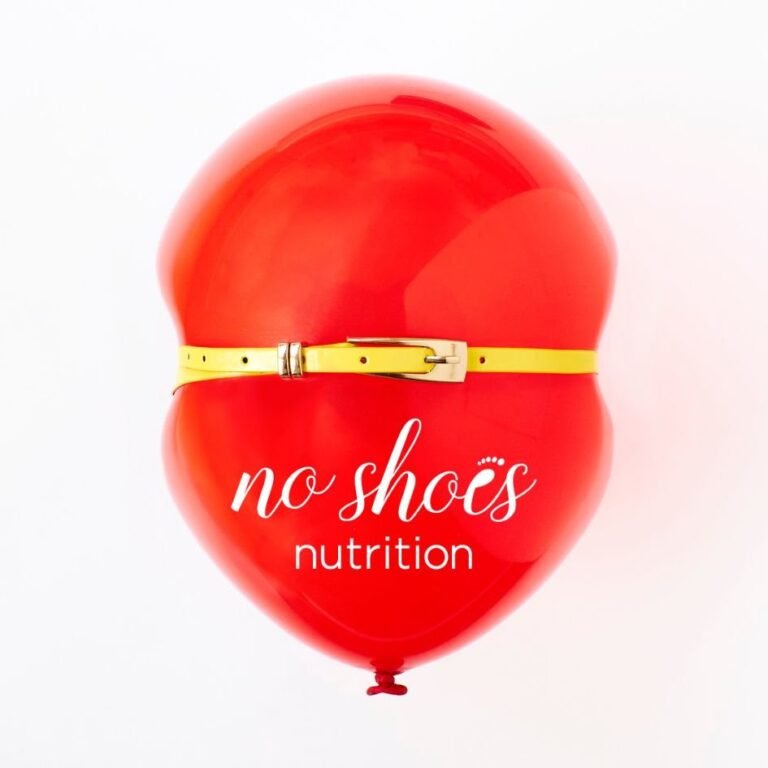Unlocking Gut Health: Say goodbye to bloating and discomfort
By: Megan Barefoot
Tired of feeling bloated and uncomfortable after every meal? You are not alone. In fact, many people dealing with gut issues and inflammation face this frustrating reality every day. It affects lives, it can be annoying, uncomfortable and frustrating! In this blog post, I’ll get to the root of bloating and discomfort, explore desires to feel energized and alive, and face fears of never being resolved. However, I won’t just stop there! I will provide five simple strategies to help alleviate these problems and promote gut health.
Let’s start by looking at understanding frustration. Bloating and discomfort after meals can be caused by a variety of factors, including poor digestion, food sensitivities, gut microbiota imbalance, and inflammation. This constant discomfort can significantly affect one’s quality of life, leading to frustration and a desire for relief. With all these possibilities it can seem impossible to get to the real root, but that’s where blocking some simple everyday habits can help.
I know that each of us desires more energy and vitality. Imagine waking up every day feeling energized and alive, ready to take on the world. This is the dream for many people who struggle with intestinal problems and inflammation. Achieving this level of vitality is not only possible but necessary for overall well-being. It is not a simple solution for many, but with time and dedication this constant fatigue and brain fog can be lifted and energy will return.
However, the fear of never finding a solution to bowel problems can be overwhelming. What if you feel bloated and uncomfortable forever? This Fear can hold people back from seeking help and taking proactive steps towards better gut health. My goal is to help people who feel this way to finally find the support they are looking for.
Five simple strategies to relieve bloating and discomfort:
Conscious Eating: Take time to chew your food well and enjoy every bite. Eating slowly and mindfully can aid digestion and reduce bloating. I know when I was first told, I was a little surprised. It seemed so simple, but I was desperate and ready to try anything! Chewing my food carefully was the first step!
Hydration: For some, not getting enough water is holding them back in many ways they don’t even realize! Drink plenty of water throughout the day to support healthy digestion and prevent constipation, a common cause of bloating. Dehydration is also linked to fatigue and overeating, so we can rule out many symptoms by simply making sure we drink enough water!
Probiotics: Incorporate probiotic-rich foods such as yogurt, kefir, sauerkraut and kimchi into your diet to promote a healthy balance of gut bacteria. If there are reasons why you don’t want to or can’t eat fermented foods, there are some amazing probiotic supplements on the market that can help build your microbiome too!
Foods rich in fiber: Include fiber-rich foods such as fruits, vegetables, whole grains and legumes in your meals to support regular bowel movements and relieve bloating. I know the idea of fiber makes some people think of eating cardboard, but honestly, there are ways to get your veggies and enjoy them! Look for some amazing recipes that include a variety of vegetables to spice up your routine!
Stress Management: Practice stress-reduction techniques such as meditation, deep breathing exercises, yoga, or spending time in nature to lower cortisol levels and support gut health. When we hold onto things in our lives and can’t let go, those feelings can be reflected in our bodies.
Bloating and discomfort after meals can be both frustrating and debilitating, but by understanding the root of these issues and implementing simple strategies to support gut health, we can alleviate symptoms and regain vitality. Remember, small changes can lead to significant improvements in overall well-being. Let’s take the first step to better gut health today!
Want to get even healthier? Are you experiencing uncomfortable gas and bloating? Could you use some support in figuring out what the root cause might be for you? Want to learn how health coaching can help you make healthy changes? Let’s talk! Schedule a free first consultation with me today—or forward this offer to someone you care about! Visit www.noshoesnutrition.com and sign up for one FREE consultation. I work with people from all over the world individually or in groups, so don’t let anything hold you back!
Bibliographical references:
Halmos, EP, Christophersen, CT, Bird, AR, Shepherd, SJ, Gibson, PR, & Muir, JG (2019). Diets that differ in their FODMAP content alter the microenvironment of the colonic lumen. Gut, 68(8), 1406-1415.
Gibson, PR, & Shepherd, SJ (2010). Evidence-based dietary management of functional gastrointestinal symptoms: The FODMAP approach. Journal of gastroenterology and hepatology, 25(2), 252-258.
Hill, C., Guarner, F., Reid, G., Gibson, GR, Merenstein, DJ, Pot, B., … & Sanders, ME (2014). Expert consensus document: Consensus statement of the International Scientific Association for Probiotics and Prebiotics on the scope and appropriate use of the term probiotics. Nature Reviews Gastroenterology & Hepatology, 11(8), 506-514.
